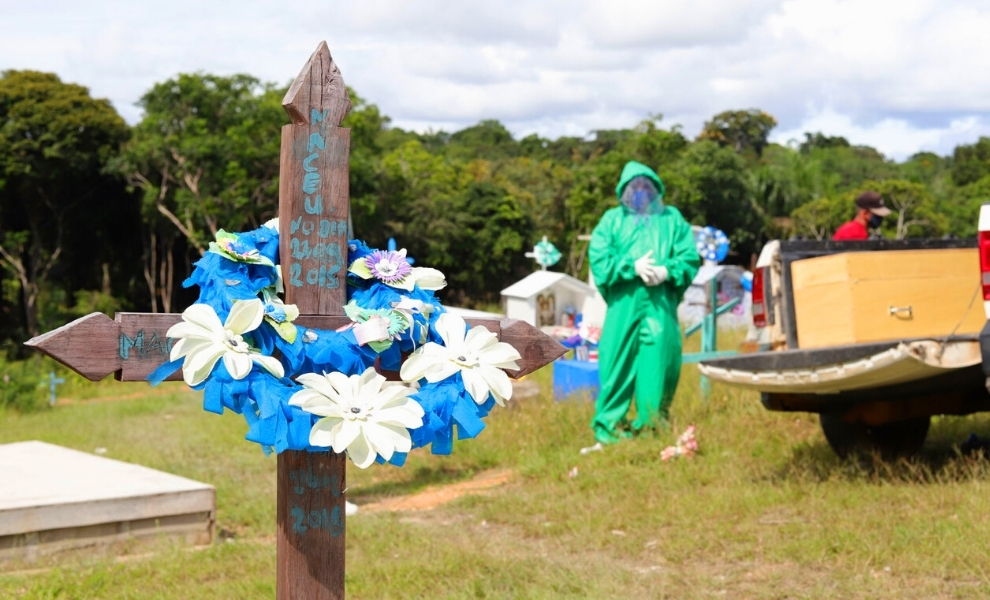When Portuguese colonizers arrived in Brazil five centuries ago, bringing diseases and firearms with them, the country’s indigenous population nearly wiped out. Now, with Covid-19, history could be repeating itself, due to Brazilians and foreigners having contact with native communities.
The first confirmed case of Covid-19 among Brazilian indigenous people came on March 25 last year, when a 20-year old Kokama woman tested positive in the Amazonian town of Santo Antônio do Içá. In this landmark case, the woman was contaminated by a São Paulo doctor deployed to the region by the Special Indigenous Health Secretary (Sesai).
He was unaware that he was carrying Sars-CoV-2.
The Kokoma indigenous community is one of the worst affected by Covid-19 in Brazil. In May, chief Messias Kokama died from the disease, aged 53.
According to an ongoing survey by the Articulation of Indigenous Peoples of Brazil (Apib), at least 985 indigenous people have died from Covid-19 in the country, with almost 50,000 confirmed cases. The virus is circulating in the communities of roughly 162 different indigenous ethnicities.
There are approximately 896,900 indigenous people in Brazil, split up into 300 different ethnicities and with 200 distinct languages.

Centuries-old cultures under threat
Covid-19 is more lethal among senior citizens. With the oral tradition of indigenous communities, elders are the source of much of their history, leading and organizing rituals...


 Search
Search






































